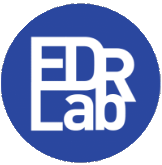The project ABE Lab – Accessible Backlist Ebooks Laboratory is a small-scale European Cooperation project. Coordinator of the project is European Digital Reading Lab (EDRLab), partners are Fondazione LIA and Koninklijke Bibliotheek (the National Library of the Netherlands). If you want to contact the team, please drop an email to contact @ abelab.eu.



EDRLab
The European Digital Reading Lab (edrlab.org) is both a development laboratory and an association of more than 70 members from the publishing industry, with lots of publishers or providers of publishing services, some huge, some small.
EDRLab has been built on four pillars, all related to digital book publishing: open standards, open- source software, digital rights management and accessibility. EDRLab is an active participant of the W3C Working Group in charge of the maintenance of the EPUB 3 format and is helping its members mastering its accessibility features. It is also the developer of the Thorium Reader application, a free and highly accessible reading application for EPUB 3 ebooks. Thorium Reader is a key element of the transition of visually impaired people from the niche DAISY publication format (generated by associations for the blind) to the standard EPUB 3 format. It has currently more than 100K users and will be deployed by 2024 in all Brazilian schools.
EDRLab is currently leading a French study of the best way to signal accessible ebooks on library websites. It is also the organizer of a yearly B2B event called the Digital Publishing Summit, where professionals meet and discuss innovations in the digital publishing industry. The implication of EDRLab in this project stems from a need expressed by its members, which is to help them finding the best solutions for remediating a huge volume of ebooks before 2025.
Fondazione LIA
Fondazione LIA is an internationally recognized expert in the certification of accessibility of EPUB 3 ebooks, having already certified more than 29.000 ebooks available in the libri italiani accessibili catalogue. Fondazione LIA has been working in the field of accessibility for digital publications since 2014. In these years Fondazione LIA has worked with all the major Italian publishing groups and several European and international organizations to help them make their publications natively accessible and to distribute them in mainstream online channels. To do this it works on the definition of production workflows, quality control checklists, procedures and technological tools. This have been possible thanks to the fact that since the beginning of its activities, LIA has actively worked in the key international organizations that define the standard for accessible digital publications, such as W3C, EDRLab, the DAISY Consortium and ISO. As for the R&D, LIA collaborates with the Institute of Information Science and Technologies (ISTI) of the Italian National Research Council (CNR), the Keio Research Institute at the Keio University, the Japanese Advanced publishing laboratory (APL) and with many technological companies and experts active in the digital accessibility field. In recent years has been working alongside educational and scholastic publishers, such as Zanichelli, DeAgostini Scuola and Il Mulino, in projects aimed at making accessible their most complex publications.
KB national library of the netherlands
KB has a long history in library research. For instance, in 2008-2012 KB led the Impact project on the digitization of cultural heritage. In this EU funded project 26 partners worked together to make OCR for historical text better, faster and cheaper. The KB is also home to the Europeana Foundation which empowers the cultural heritage sector in its digital transformation. With an organizational change in 2015 the KB became also responsible for the (digital) infrastructure of all public libraries in the Netherlands, including ebook services and digital services for people with a print impairment. Research focuses on library development but also on library innovation, for example in Future Library Labs with Delft University of Technology. Inclusion is an important topic and has already led to initiatives like an AI4Access lab with Dutch universities to improve accessibility with help of AI. With academic partners we explore the unique opportunities digital literature offers for researchers, readers and libraries (The Digital Literature Consortium – We explore the unique opportunities that digital literature offers (uvt.nl). For digital library services KB is actively seeking cooperation with other stakeholders in the digital publishing ecosystem, which is the reason to partner
with EDRLab and LIA. With the EEA on the horizon, the KB strives to get all of its public services accessible, which require cooperation with other libraries but also many other players in the publishing chain.